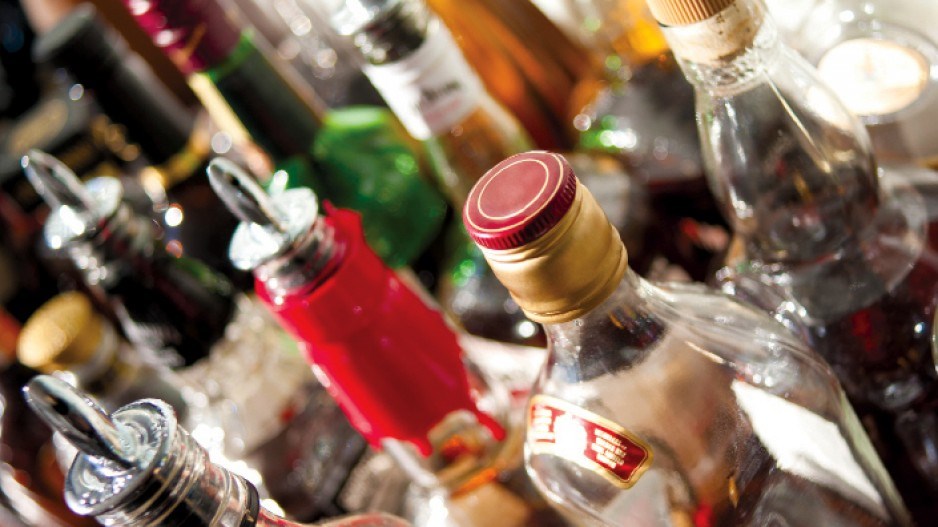A national liquor trade organization is toasting the B.C. government for putting a cork in the controversial plan to privatize liquor distribution and warehousing.
The BC Government and Service Employees' Union's (BCGEU) new two-year, government-wide contract announced September 28 forced the abrupt, premature cancellation of the distribution of liquor project. A joint Liquor Distribution Branch (LDB)/Citizens' Services evaluation committee was scheduled to recommend a winning bidder for the Treasury Board's approval by October 16.
The government claimed its goal was to cut costs and increase revenue, but it published no business plan. Business in Vancouver revealed an internal memo by BC Liberal-connected bidder Exel showing it considered using political connections to influence the writing of the request for proposals.
C.J. Helie, executive vice-president of the Association of Canadian Distillers, was outspoken at a May 9 industry information meeting where he told then-LDB general manager Jay Chambers that a private monopoly would mean higher costs for suppliers.
"The limited options they were looking at were unlikely to deliver the results they hoped for," Helie said. "By going down a road where they were going to name a single service provider with a monopoly, [a] 10-year contract just wasn't likely to provide those outcomes. When they looked at the proposals from the four finalists, they realized, I believe, the numbers didn't add up."
Helie was consulted during a previous privatization push in 2002, but the government similarly conceded to the demands of the BCGEU in 2003.
"I think it's going to be some time before it's revisited in a serious way," Helie said. "There are a lot of unanswered questions at the end of this process."
The LDB recorded a $911.1 million profit on $2.89 billion sales through March 31, 2012. Six companies responded to the April 30 request for proposals (RFP). ContainerWorld, Exel, Kuehne + Nagel and Metro Supply Chain Group were shortlisted July 20.
Bidders were required to respect a BCGEU job protection agreement, but the union mounted an anti-privatization campaign. Negotiations for a government-wide contract resumed in the last week of September, coincidentally while LDB bidders met with the evaluation committee.
BCGEU president Darryl Walker said the opportunity to thwart privatization "cropped up at the 11th hour. When we started getting some hints there might be movement there, it surprised us."
Associate professor Garland Chow of the Sauder School of Business said the government must eventually address the "antiquated" 280,000-square-foot Vancouver warehouse.
Chow added that ContainerWorld's 495,000-square-foot Richmond warehouse, which opened in 2008, could be a solution. It remains the largest pre-distribution warehouse contracted by LDB.
Owner Dennis Chrismas did not respond to interview requests. Public relations contractor Pace Group issued a one-paragraph statement that called the RFP "a valuable exercise for us."
"The province's decision to remain with the current distribution system has always been one of the options. Now that the final decision has been made, ContainerWorld and our 275 employees look forward to continuing to work with the province in the months and years ahead."
ContainerWorld had been eyed for acquisition by Exel. Exel's October 6, 2009, internal memo said Giorgio Gori of Italy had a business relationship with and option to buy ContainerWorld. Gori and Exel are both units of giant Deutsche Post DHL.
"[The government] handled [the RFP] extremely well; there would be no grounds for a complaint," Exel vice-president Scott Lyons told BIV. "I don't know how they came to their decision. Our goal was to help the BCGEU and protect the jobs for the BCGEU and help the industry and I'm glad that has occurred."
Asked if Exel would pursue a strategic alliance with or takeover of ContainerWorld, Lyons said: "It's not in any of our plans to do anything like that with ContainerWorld. I'm not looking at any other opportunities; my mandate isn't to look for other opportunities in B.C."
K+N spokeswoman Suzanne Broadbent declined comment. Metro vice-president Chris Jarvis said, "We're disappointed in the abrupt cancellation."
NDP liquor critic Maurine Karagianis said the government used the BCGEU settlement as a convenient exit from an unpopular policy shift. "They have heard very clearly that it was a bad deal for British Columbians, a bad deal for industry, a bad deal for consumers and they needed a way to get out of it."
Acting LDB general manager Roger Bissoondatt refused to answer BIV questions.
Requests to interview Liquor Minister Rich Coleman and Finance Minister Mike de Jong were not fulfilled.
"It became clear in the late stages of negotiation that this was an important element to close the [BCGEU] deal," said a statement attributed to de Jong.




